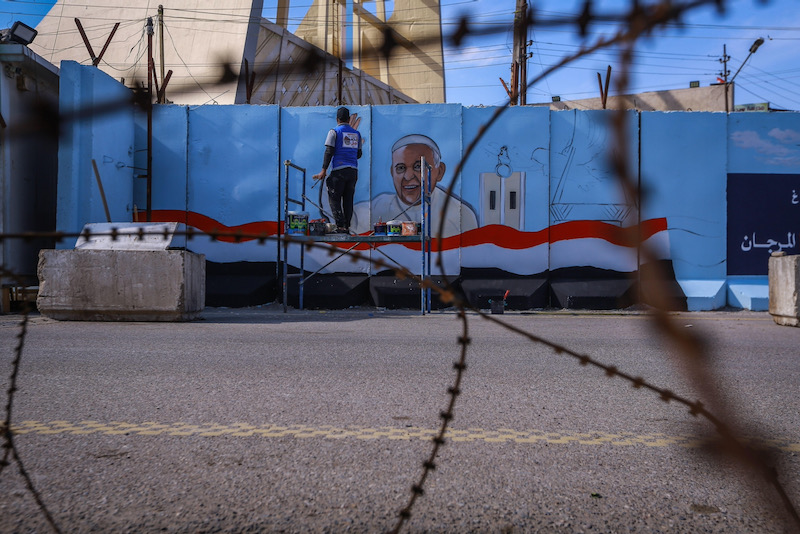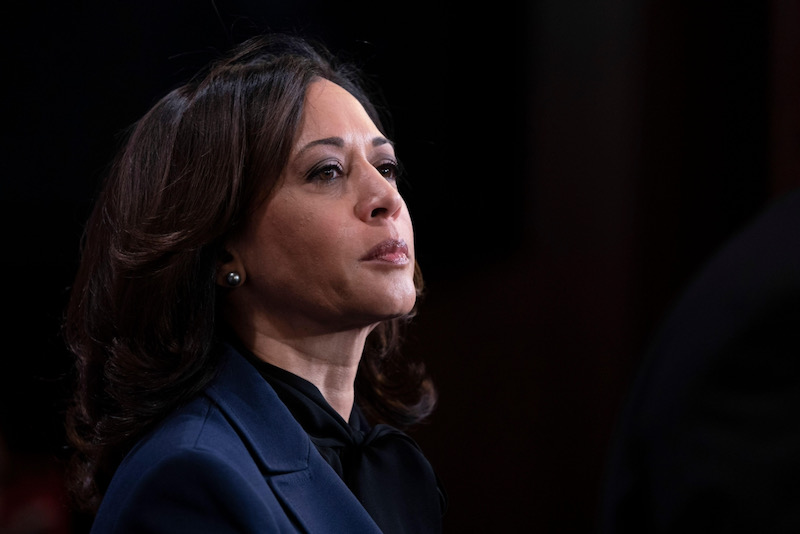Belgian Catholic authorities have protested after learning that regional governments in Brussels and French-speaking Wallonia have not included retirement homes for religious in their plans for the first wave of vaccinations for most-endangered citizens. Secular old-age homes are included. The Conference of Men and Women Religious in Belgium has appealed to have the 1,750 religious as well as their caregivers be recognised as people at risk. These homes are classified with secular homes with no priority, so the risk of presenting an infection cluster is ignored. Retirement homes for religious differ according to the orders that run them. Some are only for disabled and aged members, while other include able-bodied older members who care for the ailing. To the religious, this appeared as the latest example of a subtle anti-clericalism in Belgium. On Friday 26 February, a banner was found on the Palais de Justice in Brussels saying “Don't touch my worship”. This was a protest against official pandemic restrictions that allow only 15 people to attend any religious service. Thousands of worshippers from Belgium’s different faiths addressed a petition to the government to loosen these restrictions, which were much more draconian than those imposed after last year's lockdown. Back then, relaxed rules were based on the size of the house of worship. Certain buildings could receive up to 200 worshippers and still respect rules of social distancing and demands masks and hand solutions for everyone. With approval from local Jewish leaders, Antwerp closed a synagogue for a month because police had to raid it twice in one day in January for allowing larger groups to meet there. “It is unfortunate that I have to take this measure against a religious institution in our city, but the law applies to everyone. Our health comes first,” Mayor Bart de Wever said.
Final preparations were made this week as Pope Francis was to embark on his historic visit to Iraq. His 5-8 March trip will include ancient biblical sites and churches that have seen recent terrorist attacks. Meetings are planned with Iraqi political leaders and prominent Muslim clerics, and prayers with beleaguered Iraqi Catholics. Chaldean Archbishop Bashar Warda of Erbil said the visit “has the potential to change the trajectory of the Christian presence in Iraq from one of a disappearing people to one of a surviving and thriving people”. The Chaldean patriarchate released a prayer for the success of the visit. It concluded: “Lord, free Iraq and the countries of the Middle East from hatred and violence.”
An Amnesty International report appears to confirm reports that a massacre took place in the holy city of Aksum in Ethiopia’s Tigray region last November and blames Eritrean troops. Amnesty has collected the names of more than 240 victims. Last week, a local deacon put the death toll at around 800. Among the dead were Christians who tried to protect the Church of St Mary of Zion, which Ethiopia’s Orthodox Christians believe houses the Ark of the Covenant.
Pope Francis has expressed sorrow after three people were killed in an attack on a UN convoy travelling to visit a World Food Programme project in the east of Democratic Republic of Congo. Luca Attanasio (pictured), the Italian ambassador to Congo, was among those shot. Cardinal Fridolin Ambongo Besungu, Archbishop of Kinshasa, told Italian Catholic TV that DRC had been “devastated for years for economic and geostrategic reasons”.
The Brussels-based Commission of European Union Bishops’ Conferences, Comece, has defended the recent effective ban on abortions in Poland and criticised outside interference in the decision, including a European Parliament resolution condemning Poland’s action. In a letter to the parliament’s president, David Sassoli, Comece criticised the growing denial of conscientious objection rights across Europe.
Haiti’s bishops’ conference has said that “the daily life of the Haitian people is characterised by death, murder, impunity and insecurity” and “the country is on the brink of an explosion”. Last Sunday, thousands of Haitians marched through the capital and several major cities to call for the departure of President Jovenel Moi¨se.
Police in Pakistan have registered a complaint about the kidnapping of another Christian student from Lahore. Mehwish Bibi, who was studying at the Women’s College in the city of Gujranwala, went missing on 18 February. Her family suspects kidnapping with the aim of forced marriage after two witnesses reported seeing her being taken by three men. A report from Aid to the Church in Need said: “ACN’s work in Pakistan helping Christian girls who are kidnapped, forced to convert and horrifically abused, has revealed that these abductions are a major problem for girls from many minority faith communities.”
In an unusual interview with Deutsche Welle, the Catholic bishop for Germany’s military, Franz-Josef Overbeck of Essen, has warned that growing deficiencies in equipment for the armed forces in Germany have reached “existential dimensions” for many military personnel, endangering their safety and efficiency.
US President Joe Biden and Vice President Kamala Harris invited the Gospel Choir of St Augustine’s Catholic Church to the White House as part of the celebration of Black History Month. First Lady Dr Jill Biden introduced the choir by recounting a history of the congregation, which was founded by freed slaves and first worshipped in the basement of a segregated white church.
Poland’s Jesuit order has published the diaries and memoirs of a Jesuit priest, Fr Wladyslaw Gurgacz, who was sentenced to death and shot in Krakow in 1949, aged 35, for acting as chaplain to a group of anti-Communist partisans. An expert called the collection a profound meditation on the moral duties and hazards of resistance.
President Nayib Bukele emerged as the big winner in El Salvador’s elections on Sunday after his party and its allies took control of the legislature. With about 76 per cent of the votes counted, it was projected that Bukele’s party and a small allied party would win the 56 seats needed for a super- majority.The president could then name loyalists to the independent attorney general’s office and the Supreme Court without negotiating with the opposition. Bukele’s meteoric rise and tightening grip on the armed forces have worried human rights advocates.
The Brussels-based Catholic International Cooperation for Development and Solidarity (Cidse) has called for the cancellation of poor countries’ debts to enable them to survive the Covid pandemic. In an appeal to the G20 leaders, Cidse said that the pandemic had worsened inequalities as “more powerful countries use their position and power to secure access to vaccines and support their own economic recovery”.
Witnesses at the fifth hearing in a trial for alleged abuse and cover-up at a Vatican junior seminary testified last week to an unhealthy culture of ridicule and abuse of power. The witnesses, three former students at the Pius X pre- seminary, testified before the Vatican City State’s court. They alleged that reports of abuse were known by Cardinal Angelo Comastri, the former archpriest of St Peter’s Basilica – whose resignation Pope Francis accepted last month. Comastri had dismissed the abuse allegations as “false and calumny”.
Days ahead of Pope Francis’ visit to Iraq, the leading Catholic charity Aid to the Church in Need announced a £1.3 million scholarship package to Christian students amid concerns about the continuing migration of the faithful from the country. The grant will allow 150 students to study at the Catholic University of Erbil in Kurdish northern Iraq for the next four years.
In legislative elections on Sunday 28 February, President Nayib Bukele’s Nuevas Ideas (New Ideas) party won a supermajority in Congress. He will be able to unilaterally make Supreme Court and Supreme Electoral Tribunal appointments. As mayor of San Salvador, Mr Bukele campaigned on offering fresh ideas to break the political stalemate between the National Republican Alliance (Arena) and the left-wing Farabundo Marti´ National Liberation Front (FMLN). He was elected president in 2019. Falling murder rates in what only a few years ago was the most violent country in the world have bolstered his popularity, while corruption scandals have discredited the FMLN and Arena. Human rights organisations including Amnesty have expressed concern at Mr Bukele’s authoritarian tendencies. The Archbishop of San Salvador, Jose´ Luis Escobar, published a pastoral letter before the elections directed at the candidates, saying: “Violence, imposition and meddling between branches of government is not an effective way to live politics as your vocation.”



 Loading ...
Loading ...